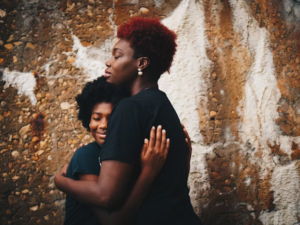Your Pocket Guide to Understanding ADHD in Girls
Attention Deficit Hyperactivity Disorder (ADHD) has for many years been looked at from a mostly male-focused perspective. Only in more recent years has it become more understood that not only do girls also experience ADHD, but that their experiences are unique from some of the more stereotypical traits we often associate with ADHD. But before we dive in let’s review what those ADHD traits might look like.
Traits of ADHD
People with ADHD show a consistent pattern of inattention and/or hyperactivity/impulsivity that interferes with daily life tasks and responsibilities. Some of the common symptoms of inattention deficits are; failing to give close attention/detail in school, work, or activities, trouble holding attention on tasks, appears to not listen when spoken to directly by others, difficulty organizing activities and tasks, avoids or dislikes tasks that require mental effort, is easily distracted, and is often forgetful of daily responsibilities, tasks, or important objects.

Hyperactivity and impulsivity might look like someone who frequently; fidgets with or taps hands or feet or might squirm in their seat, runs or climbs in inappropriate places/situations, talks excessively, will blurt out answers or complete the sentences of others, difficulty waiting their turn, and interrupts others.
Many of us have experienced these characteristics at some point in our lives. The difference in typical distraction or impulsivity is that several of these traits exist, are present in more than one area of life (school, work, at home, with friends), have been present since before age 12, and are not better explained by a different disorder.
So What Makes ADHD Different in Girls?
Maybe you’ve heard or even said, “Well I never had a hard time sitting still so I can’t have ADHD” or “I was always good at listening to my teachers so ADHD wouldn’t make sense.” Often the outward signs of ADHD are the most easily recognized, such as climbing around, interrupting others, or being a class distraction. But girls are much more likely to present with more easily overlooked symptoms like forgetfulness, disorganization, or getting easily distracted.
Girls also face a different set of social rules and expectations, many that can help mask the challenges of ADHD. Think of the often unsaid rule of society that girls are more emotional, nurturing, easy-natured, and better at communicating than their male peers. A girl in middle school who struggles to pay attention but has never caused class disruptions is much more likely to fly under the radar, compared to a loud, talkative boy in her same classroom.
For any child, school has its own set of hurdles and challenges. When paired with undiagnosed ADHD, a girl navigating the ups and downs of growing up, peer pressure, and the always present need to fit in can worsen anxiety and feelings of not being good enough. Girls with ADHD may struggle with low self-esteem and feeling like they just don’t measure up to their classmates and friends.
How You Can Offer Support

If you’re the parent of a girl recently diagnosed with ADHD or maybe you’re a woman trying to figure out what’s next in managing your own ADHD symptoms, you might be wondering how you can find support. Finding providers and resources is a great first step in building a community and skills around yourself or your child. Check out the list below of a few steps to take when first tackling ADHD in your child.
- Finding a medical professional familiar and equipped to work with ADHD.
- Getting into treatment with a therapist with training in ADHD management
- Setting up accommodations at school or at work
- Making use of online resources such as: Additude Magazine & CHAAD
ADHD can feel like a big hurdle to our life goals and aspirations. With quality care and support ADHD doesn’t have to feel like a burden in our lives and can be adapted to our own unique strengths.
If you want more help with skills like this, join our skills training groups or schedule with a therapist at CCDBT. We’d love to go more in-depth with this skill and many more like it!
About the Author
Eleanor Raker (she/her) MA., LPC is a Licensed Professional Counselor who specializes in Dialectical Behavioral Therapy. Eleanor works with teens (ages 14+) through adults who are seeking better balance in their lives and the tools to get them there. She believes the therapy process is unique to each person and strives to make meaningful connections to each client. Click here to learn more about Eleanor’s experience and therapeutic approach.

